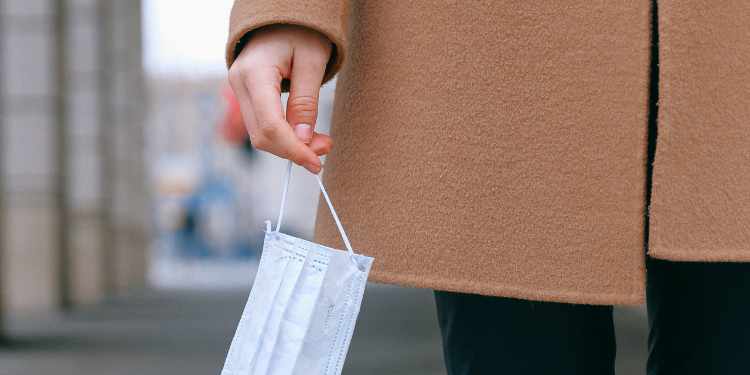









As the world grapples with the coronavirus (COVID-19), people are practicing social distancing and experiencing mandatory lockdowns in an effort to contain the spread of the disease. But while staying inside is meant to be for one’s protection, for those facing domestic violence, it’s anything but safe. Isolated from the people and resources that can help, victims of an abusive partner, parent, or child are often trapped at home with their abusers.

With more than 14,000 cases across the United States of people infected by the coronavirus and over 210 deaths, domestic violence hotlines are seeing a surge of activity. Callers say their abusers are using the coronavirus to further isolate them from their family members and friends. For instance, perpetrators are threatening to withhold financial resources for victims who have lost their jobs, or medical assistance for those who may be infected. Others threaten to kick their victims out of the house. As millions of people are told to stay home and protect themselves, it is severely impacting the lives of domestic violence victims as abusers unleash more violence.
According to the World Health Organization, domestic violence is the most widespread but least reported amongst any other human rights abuses. The WHO reports that a shocking one out of every three women in the world will experience some form of physical or sexual violence during their lifetime. During times of crisis such as a pandemic, war, or natural disaster; the risk of domestic violence substantially intensifies. This can be evidenced by the tripling of the amount of reported domestic violence cases in China when the coronavirus outbreak was rampant in February and a mandatory lockdown was enforced.
Domestic abuse is rooted in having control and power. At a time when people are feeling increased panic, fear, and a loss of control; those who cannot manage their emotions in a healthy way are seeking negative outlets. For abusive partners, abusive parents, or an abusive child, that means taking it out on their victims. Those already in abusive environments are more likely to see extreme violence at a time when they can no longer easily escape. The abuser knows their victims have to remain inside with them – away from friends, family, and without the ability to go to work.
The National Domestic Violence Abuse Hotline suggests an abusive partner might use the following tactics during the COVID-19 outbreak:
Furthermore, the current state of the coronavirus crisis makes it even more challenging for victims to get help. Medical facilities are focused on elevating their response to the pandemic, which is putting a strain on already overloaded health systems. Abuse victims who usually have a difficult time being heard are suffering even more as medical care is limited. For many, the fear of contracting the virus alone (literally!) is halting their efforts to seek out medical care after domestic abuse. Although these victims may be injured or experiencing pain, they do not want to go to the emergency room due to the fear that they might catch the coronavirus.

Younger victims may avoid escaping their abusive partner and seeking refuge at their parents’ homes out of fear that they may expose their aging parents to the virus. For others, travel limitations may restrict an abuse victim’s ability to find shelter at a loved one’s or friend’s home. Even as women’s shelters become overcrowded during this time, they may stop allowing in more people if the risk of infection appears too high.
The coronavirus has unmasked devastating flaws in the social safety net. With fears of the coronavirus pushing the world economy into recession, victims with abusive partners may have difficultly leaving their violent relationships. Often an abusive partner will attempt to secretly save money to escape. But as more and more people are working less or completely laid off, this can become difficult to do. Additionally, recessions are when social services often see the most budget cuts, which can greatly impact philanthropic efforts and aid towards domestic violence victims.
Victims who are still going to work or who are not in quarantine status should immediately seek help. Take the opportunity while you can. As the coronavirus worsens over the next few weeks, it will become increasingly harder to get away and shelters will be shuttered. In addition, the National Domestic Violence Hotline is still answering calls. However, victims isolated at home with their abusers might find it hard to make any calls without their perpetrators hearing. The hotline does offer help through texting and online chat to make it easier for abuse victims to receive the help they need while at home. Victims can also reach out through email or their Facebook page and an advocate will help them come up with a plan of action. These safety plans may include a safe word in a text or call to check up on the victims to ensure they are safe and secure.
Often, abuse victims choose to stay for extremely complex reasons. In most cases, they believe that their abuser will execute the threats and follow through with the intimidations they use to keep their victims trapped. This includes killing or hurting them, killing or hurting the children, harming pets, or ruining them financially. However, it is absolutely vital that you escape your abuser, and seek help to do so.